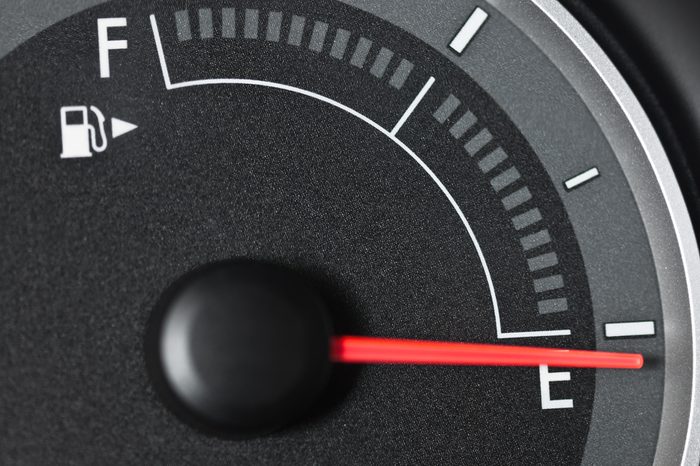
You’re out of gas
Maybe you were really lost in that riveting podcast on your way home and didn’t notice your fuel level dropping. Just make sure that—if your car won’t start—the first thing you check is your gas gauge. Slightly embarrassing, yes, but this is the least expensive and easiest fix for a car that won’t start.
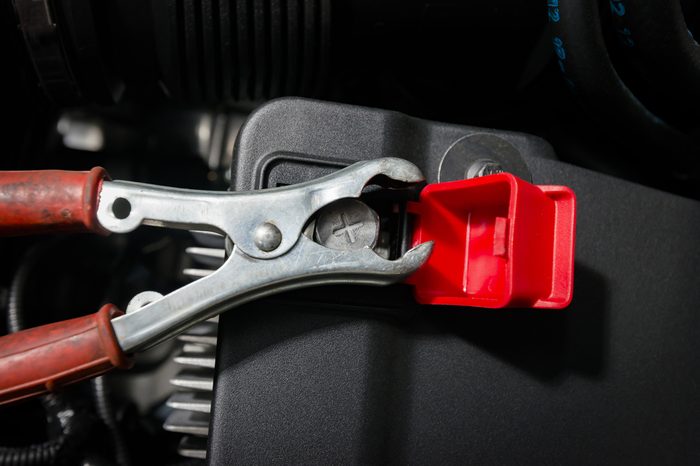
The battery clamps are loose
Your battery may not be dead after all: When your car won’t start, pop the hood and check that the battery clamps are secure—and free of battery acid build up. If not, tighten them up and try again to turn the ignition.
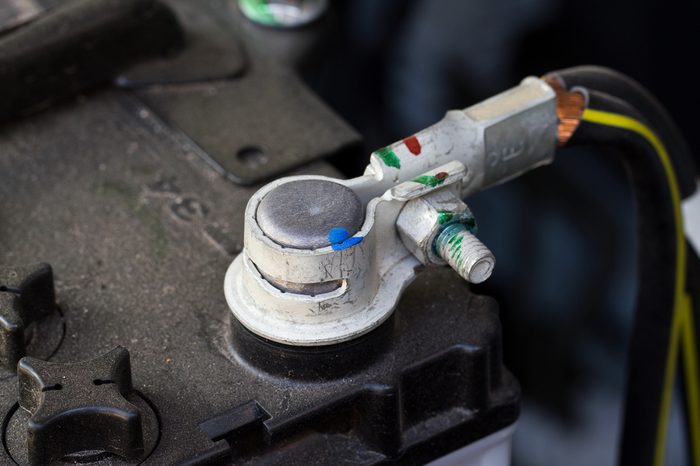
The battery terminals are dirty
If you see some nasty looking whitish, greenish crud around your battery posts, the connection might be weak. Carefully undo the clamps (the crud is acidic) and clean the posts with the proper tool (like this terminal cleaning brush). If you don’t have that on hand, try tapping on each terminal to jar some of the gunk loose to get you going again.
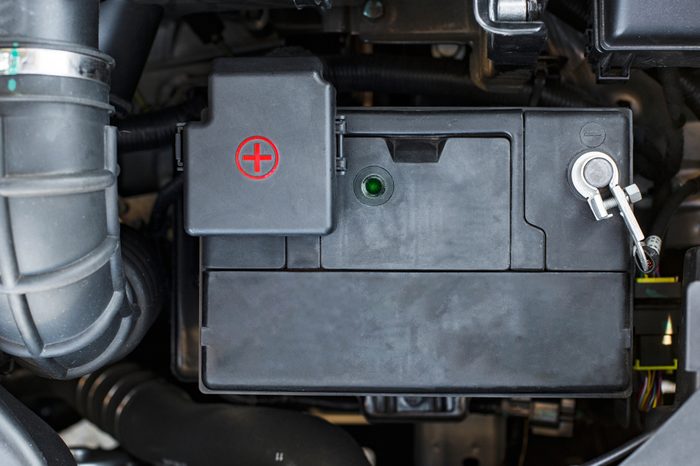
The battery is dead
So the terminals are tight and clean and still nothing? You probably have a dead battery. If you have jumper cables, you might be able to find another motorist to give your battery the jolt it needs to start up. Better yet, keep a handy-dandy jumper battery like this one in your car for these situations. Next, check with your mechanic to see if you need a new battery. Here are the best cars under 18K.
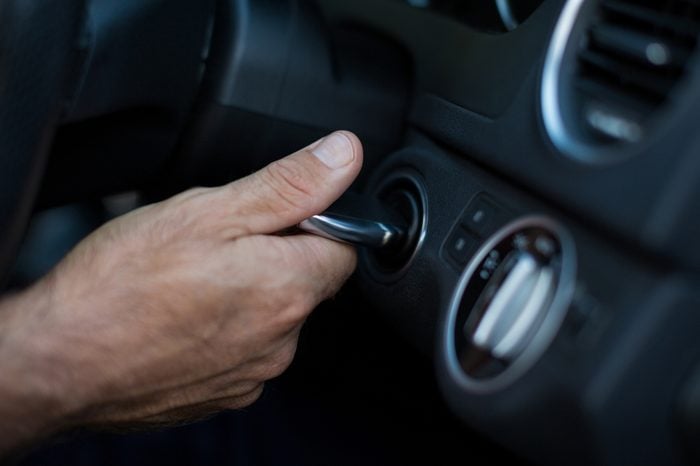
The starter stops
When you put in the key and turn your ignition (or, in newer cars, push the button), an electrical motor (the appropriately named starter) connected to the car’s battery cranks your engine to get it started. If it will fail to respond, just clicks, or emits a horrible grinding sound, it’s time to call the mechanic, says the automotive site yourmechanic.com.
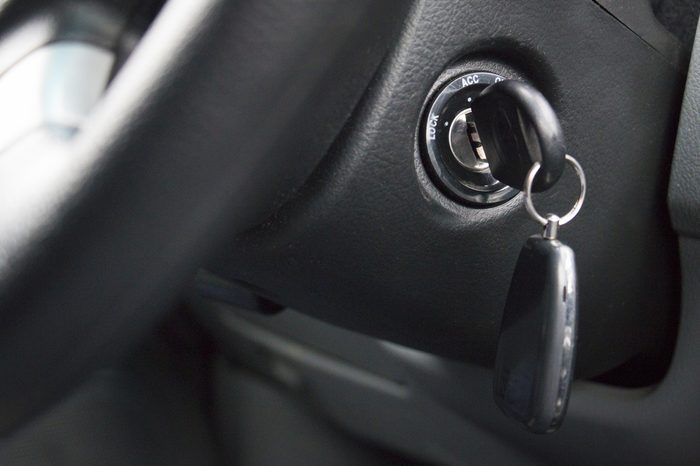
The fuel pump relay has run its last race
When your car sputters and dies—or if it chugs a little when you start it and then quits—you could be looking at a faulty fuel pump—or fuel pump relay, according to autoblog.com. You’ll need a mechanic’s help to get this car back on the road again.
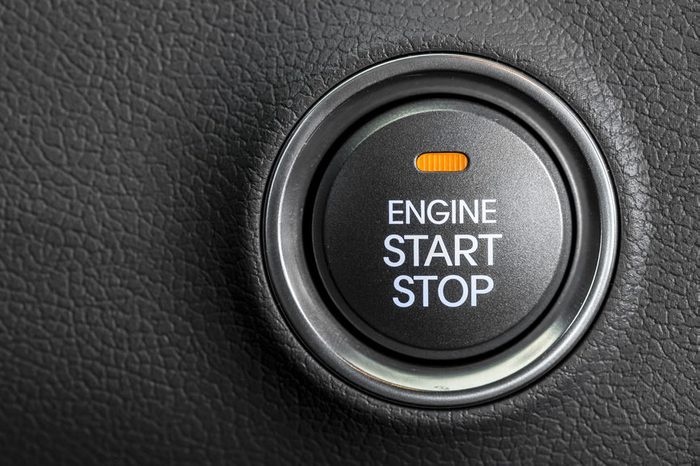
The key is the key
Modern cars with push-button ignitions require that the key fob be inside—or at least very close—to the vehicle in order to start. Check to make sure you have your keys on you.
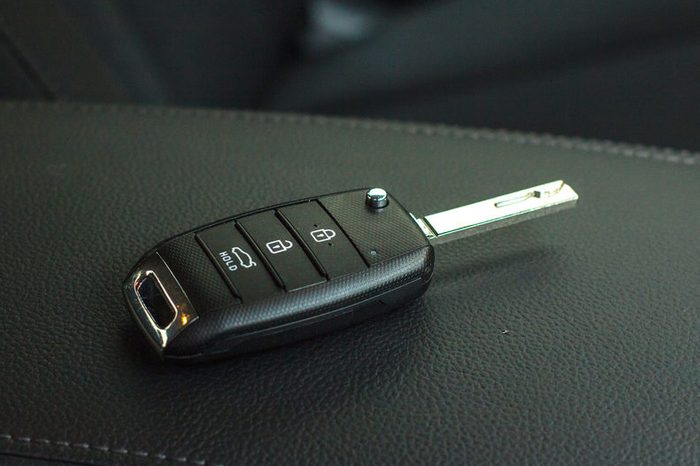
Your car is fine but the key fob is dead
The reason your car won’t start may have nothing to do with your car at all. The battery in your key fob may be dead. Check the owner’s manual to see how to start your car in this situation or contact your dealer for a new key.
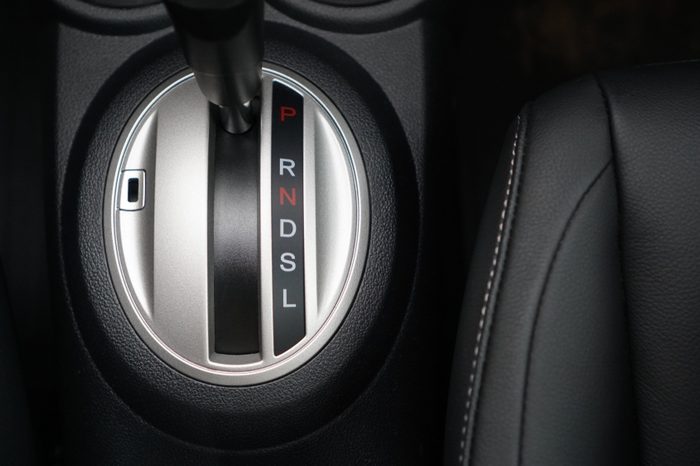
You cannot drive because you are still in Drive
Another possible reason your car won’t start is that you never put your automatic transmission vehicle in Park. Switch gears out of Drive or Reverse into Park, and try again. Here are the car brands that cost the least to repair.
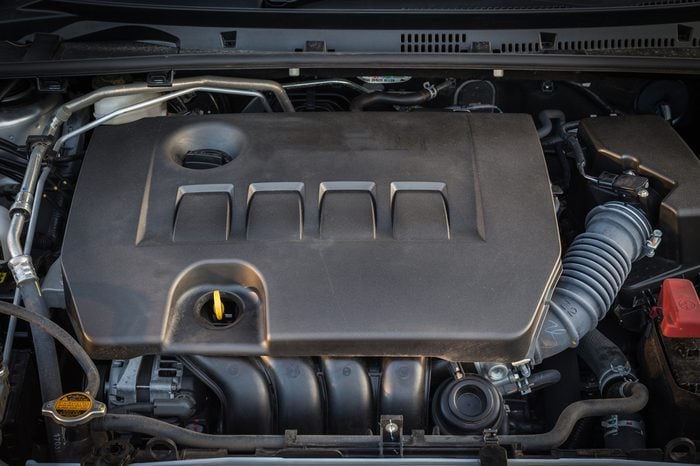
The engine is flooded
Modern cars don’t need you to pump the gas while starting—and you could flood your engine; wet spark plugs won’t be able to create the spark needed to start your car, according to NPR’s Car Talk experts. They recommend holding the pedal to the floor and cranking the engine until it starts.
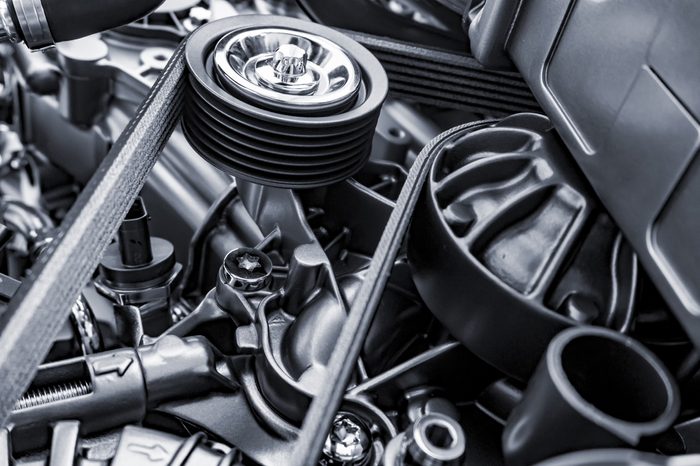
It’s time for a new timing belt
If your engine won’t turn over, the timing belt may be broken. This is a serious problem that you’ll need a mechanic to resolve. According to Erie Insurance, “the timing belt is the most important maintenance item in your engine and a failed timing belt can cause catastrophic engine damage requiring an engine replacement.” Sadly, a broken timing belt means it is time for a tow truck.
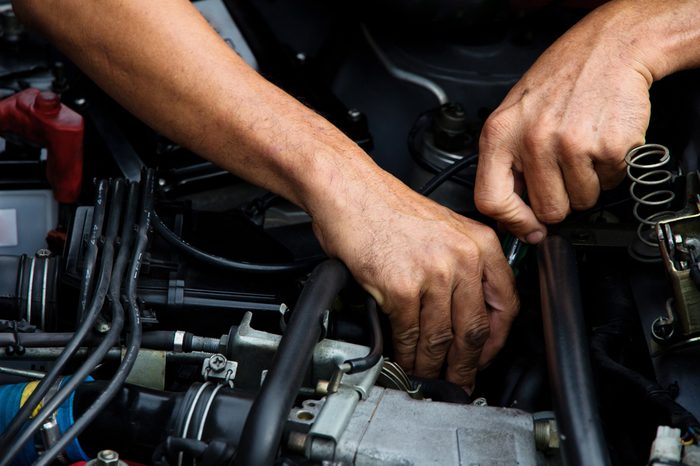
The computer is not OK
Modern cars have some fairly hi-tech computer gadgetry built into them. If the computer sensor tasked with transmitting info to the engine malfunctions, your car won’t start and you’ll need to tow your baby to a mechanic.
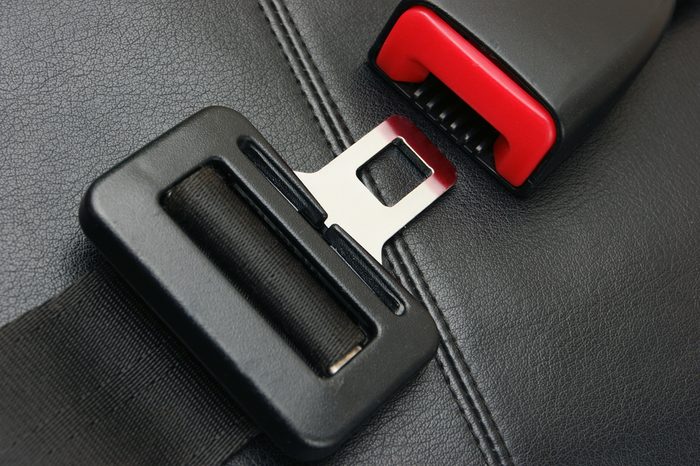
Your seat belts aren’t buckled
Believe it or not, some cars won’t start until the seat belts are securely fastened. Safe yes, but also frustrating. So click it before you get a ticket… and before you try to start your engine! Keep these items in your car to be insanely more productive.
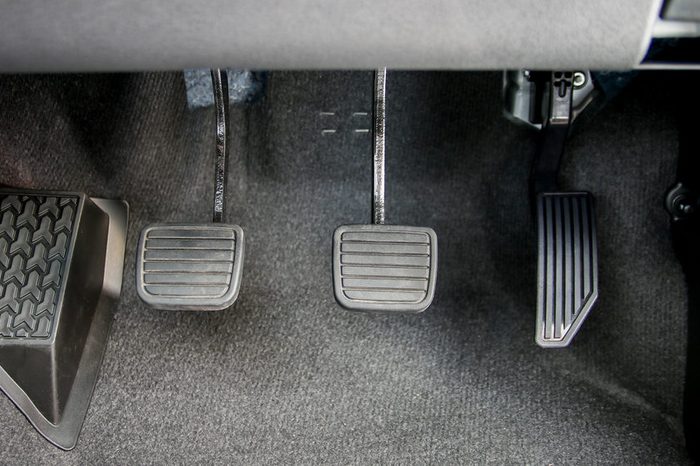
Your clutch isn’t pressed far enough
If you are driving a manual transmission car, it might not start because you aren’t pressing the clutch far enough. Go back to the driver’s seat and give it a bit more pressure when you try to turn the engine over.
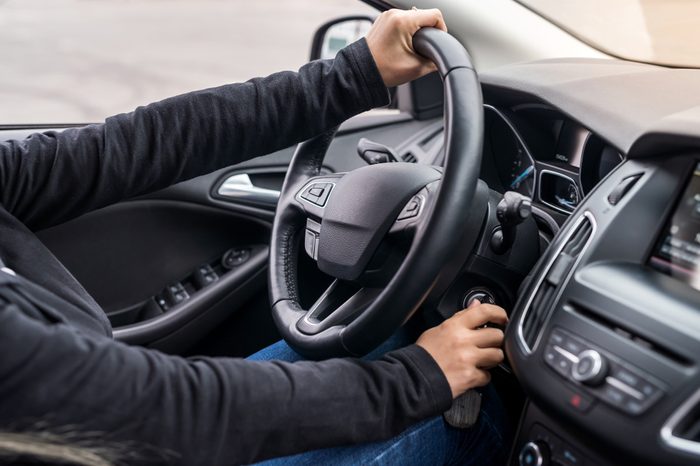
The key won’t turn
A strange kind of anti-theft mechanism may be responsible: If your wheel is stuck in a locked position, your car won’t start. Nudge it a little in either direction while turning the key to kickstart your ignition. Watch out for all the ways you’re wasting money on your car.
